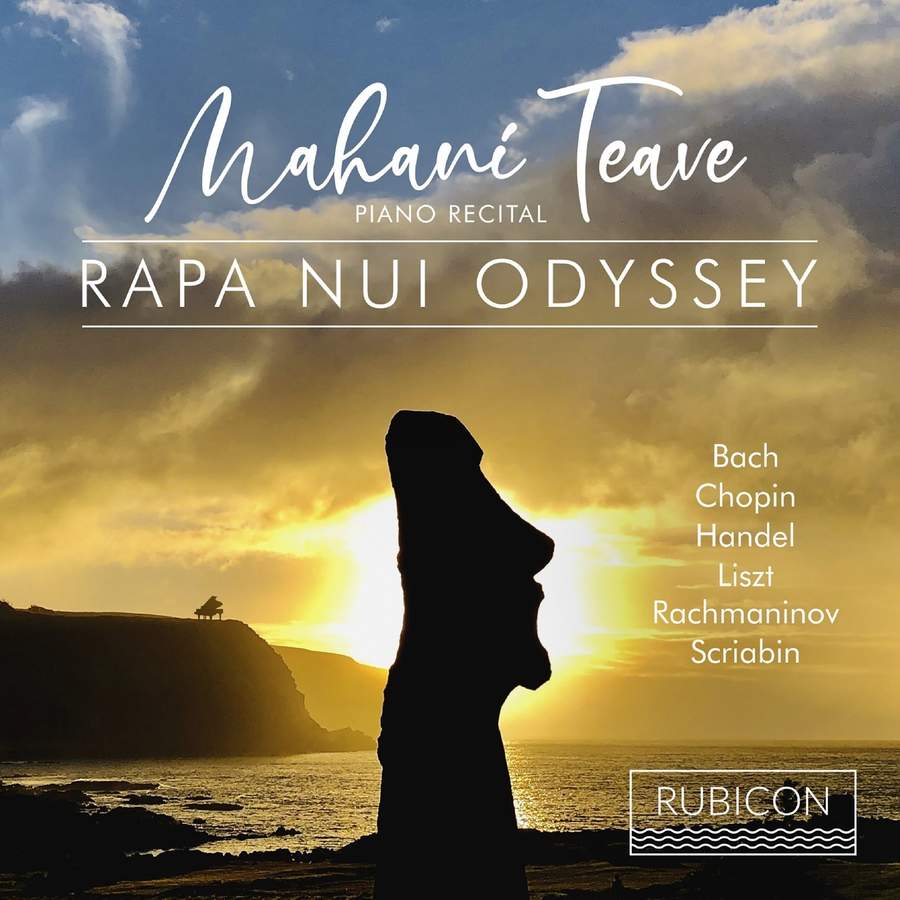
![]()

Occasionally a recording appears with a backstory so extraordinary that its intrinsic musical merit risks being overshadowed. The 1946 Columbia release of Chopin played by Maryla Jonas, a Polish war refugee who had been ‘rediscovered’ by Arthur Rubinstein in Brazil a year earlier, is one example. The sensational 1977 International Piano Archives recording of the 75-year-old Ervin Nyiregyházi playing Liszt is another. The story behind ‘Rapa Nui Odyssey’, a recital by pianist Mahani Teave, is no less surprising.
In spring 2018 David Fulton, a former software designer and Microsoft executive, who now collects instruments and produces films in Seattle, visited Rapa Nui with his wife. Like all tourists, Fulton writes in his introduction, they had come to marvel at the giant moai sculptures and enjoy the beauty of the island and its native culture. Rapa Nui, or Easter Island, one of the most remote inhabited islands on earth, is a special territory of Chile, with a 2017 population of fewer than 8000 people. On a side-trip, the Fultons were taken to a music school near Hanga Roa, far south on the island’s western coast, where they were charmed by the performances of the young students. But charm turned to astonishment when Teave seated herself at an old battered upright and began to play. On the basis of this performance the Fultons invited Teave, her husband and young daughter to visit them in Seattle and there to make a recording. ‘Rapa Nui Odyssey’ is the result.
Bach’s Chromatic Fantasy and Fugue, not perhaps the latest word in Baroque stylishness, is nevertheless a model of clarity, beautifully paced and deeply felt. The Liszt B minor Ballade has characteristic breadth and grandeur, moving easily between contrasted poles of heroic rhetoric and caressing lyricism, its taut narrative moving inexorably towards its triumphant denouement. The same feel for Liszt’s characteristic rhetoric permeates the more familiar ‘Vallée d’Obermann’, the spirit of which Teave enters into wholeheartedly but without histrionics or excess of any kind.
The E major Handel Suite is neatly contrasted with the Bach Fantasy and Fugue, revealing a secure grasp of the two masters’ stylistic fingerprints. Teave’s Chopin-playing inhabits a world all its own, almost painterly in its subtle colours and marked everywhere by an exquisitely poised cantabile. After a luxuriously sensual Barcarolle, the febrile desperation of the B minor Scherzo provides vividly apt contrast. A splendidly Italianate Op 9 No 1 is paired with a desolate E minor Op posth to create a sensitive diptych of genuine eloquence. Works by Rachmaninov and Scriabin bring other flavours and moods to this varied programme, which concludes with a touching encore of traditional Rapa Nui music.
As fulfilling and enriching the musical culture of Rapa Nui surely must be, one hopes that Mahani Teave will somehow find a way to share her beautifully wrought, heartfelt pianism with audiences beyond her remote island.
Read in Gramophone magazine.


